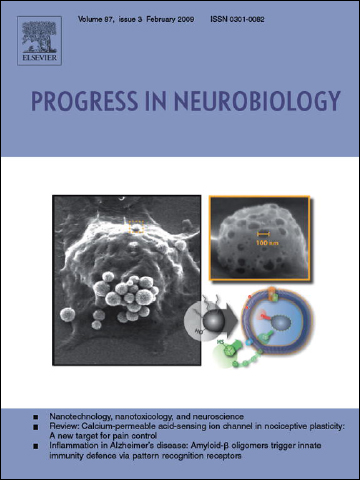
“Alzheimer’s disease (AD) is a debilitating neurodegenerative disease that is affecting an increasing number of people. It is characterized by the accumulation of amyloid-β and tau hyperphosphorylation as well as neuroinflammation and oxidative stress.
Current AD treatments do not stop or reverse the disease progression, highlighting the need for new, more effective therapeutics.
Cannabidiol (CBD) is a non-psychoactive phytocannabinoid that has demonstrated neuroprotective, anti-inflammatory and antioxidant properties in vitro. Thus, it is investigated as a potential multifunctional treatment option for AD.
Here, we summarize the current status quo of in vivo effects of CBD in established pharmacological and transgenic animal models for AD.
The studies demonstrate the ability of CBD to reduce reactive gliosis and the neuroinflammatory response as well as to promote neurogenesis.
Importantly, CBD also reverses and prevents the development of cognitive deficits in AD rodent models.
Interestingly, combination therapies of CBD and Δ9-tetrahydrocannabinol (THC), the main active ingredient of cannabis sativa, show that CBD can antagonize the psychoactive effects associated with THC and possibly mediate greater therapeutic benefits than either phytocannabinoid alone.
The studies provide “proof of principle” that CBD and possibly CBD-THC combinations are valid candidates for novel AD therapies.” https://www.ncbi.nlm.nih.gov/pubmed/28217094

 “As a consequence of an increasingly aging population, the number of people affected by neurodegenerative disorders, such as Alzheimer’s disease, Parkinson’s disease and Huntington’s disease, is rapidly increasing. Although the etiology of these diseases has not been completely defined, common molecular mechanisms including neuroinflammation, excitotoxicity and mitochondrial dysfunction have been confirmed and can be targeted therapeutically.
Moreover, recent studies have shown that endogenous
“As a consequence of an increasingly aging population, the number of people affected by neurodegenerative disorders, such as Alzheimer’s disease, Parkinson’s disease and Huntington’s disease, is rapidly increasing. Although the etiology of these diseases has not been completely defined, common molecular mechanisms including neuroinflammation, excitotoxicity and mitochondrial dysfunction have been confirmed and can be targeted therapeutically.
Moreover, recent studies have shown that endogenous 




